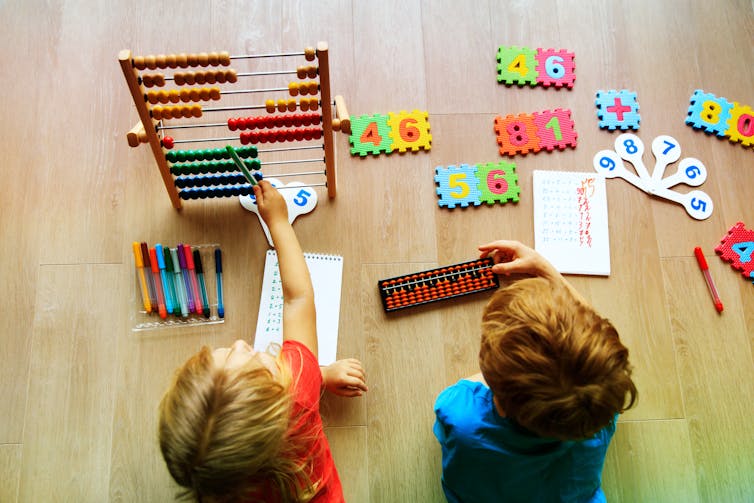
Increasingly politicians want to see their countries rise up the league tables, which has led to attempts to import ways of teaching from overseas. In England, many schools have adopted East Asian methods in maths teaching to try to climb the league tables. This has come be to be called the “mastery maths” model.
Singapore and Shanghai both do very well in international PISA tests compared to England, but the way both places approach mastery is slightly different. The mastery method adopted in English schools has mostly been modelled on the Shanghai system – and has involved teachers from England going to Shanghai and having Shanghai teachers go to England.
We have spent the past four years researching whether the Shanghai exchange would lead to changes in teaching in England and whether this would lead to better test scores. We found that in many of the schools that were involved in the first exchange in 2014-2015 there have been a lot of changes – and many adopted Shanghai-style maths teaching. These changes have involved slowing down the curriculum, using more learning by heart, more interaction between teacher and pupils, and using different ways of representing maths ideas. Schools have also adopted ways to give all children access to challenging maths.
But when we compared the test scores to similar schools who have not adopted the mastery method, we found there had been no change in the test results of 11-year-olds. For seven-year-olds we found a small change but nothing that would suggest a massive improvement in scores from the new mastery method.
Importing education
Perhaps this isn’t surprising though, because teaching methods are not the only reason for East Asian success. And in some ways, Shanghai maths hasn’t yet had a fair test in England. UK teachers have been expected to adopt Shanghai approaches, but have not had the same amount of time for professional development or to plan lessons.
There’s also the fact that in Shanghai primary schools, children are generally taught by the same teacher for two to three years – so the teacher gets to know the pupils very well. Policies in China that have led to many parents only having one child also mean that young children get a lot of adult attention from parents and grandparents – which could also help their development.
Read more: Maths challenge: England has one of the biggest gaps between high and low performing pupils in the developed world
Although Shanghai maths imported to England has not had the effect on results that was hoped for, it does not mean that with more time it cannot lead to improvements. And there are particular ideas in the Shanghai maths approach – such as high quality mathematical talk and careful choice of how to represent maths ideas – that do have evidence for success in England as well as other countries.
Further afield
If East Asian methods do not import easily because of other factors, then perhaps politicians should broaden where they look for ideas in maths. Switzerland, for example, was the top European performer in maths in PISA in 2015 – not far behind East Asian countries.
Canada also did significantly better than England. Though recently, Canadians have also started worrying about their performance.

There’s also more that can be learnt from PISA and other international tests. It seems, for example, that all high-performing education systems have some common features. These include: supporting teachers with good pay, conditions and status. Teachers that are given the freedom to decide what and how to teach with support from researchers but without political interference, also seems to be another contributing factor. As does having an emphasis on good outcomes for everyone – not just the highest performing children – most high performing countries do not group children by ability from a young age, as often happens in England.
In any case, different tests tell different stories. Another international test – Trends in Maths and Science study – shows England’s results in maths have been steadily improving for the past 20 years. Perhaps then, the most important lesson from England’s mastery experiment is to stop worrying so much about international league table positions – and for schools to focus on encouraging all pupils to be the best they can be.
Read more: Why global education rankings don't reveal the whole picture
Mark Boylan, Professor of Education, Sheffield Hallam University
This article is republished from The Conversation under a Creative Commons license. Read the original article.
No comments:
Post a Comment